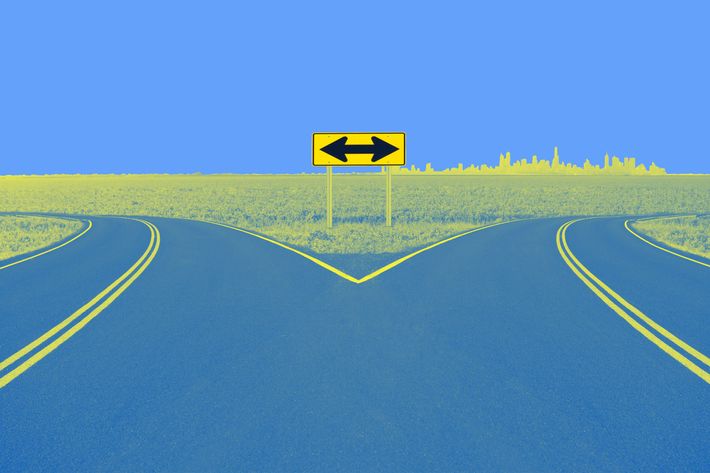Sources

By the time you roll into work in the morning, you’ve already made a string of decisions: whether to get up with the alarm or hit snooze a few times, what to wear, what to eat for breakfast (or whether to eat breakfast at all), whether to take an umbrella or take a chance on a cloudy day, walk or bus or subway, make coffee at home or stop at Starbucks or wait and get some from the office machine. Maybe you want milk in that coffee — soy or skim or half-and-half? Or maybe you’ll just have tea instead.
Each one of those choices, inconsequential though they may seem, brings you one step closer to decision fatigue, a state that’s exactly what it sounds like — research suggests that we have a finite amount of willpower, and each choice chips away at it just a little bit more, making the next one more of a mental effort than the last. And the more fatigued we become, the more inclined we are to passively stick to the status quo, even if it’s not the best course of action: As the workday goes on, for example, judges become less likely to grant parole, and doctors more likely to prescribe unnecessary antibiotics.
But in a recent study in the journal Social Psychology and Personality Science, researchers found a caveat: We’re less likely to experience decision fatigue – and more likely to enjoy the decision-making process – if we’re making that decision for someone else. As behavioral scientist Paul Dolan has explained to Science of Us, one way to avoid decision fatigue is to let your friends order food for you; returning the favor, this new study suggests, won’t leave you any worse for the wear.
For the study, a total of 957 volunteers ran through a series of hypothetical scenarios, presented as choices either for themselves or for another person. Those making the decisions for themselves, the researchers found, tended to choose the more passive option for a given scenario, like keeping their money in an existing account rather than switching to another, more lucrative one. When some volunteers were also asked to drink a cup of a “mildly unpleasant” vinegar-based beverage, the ones who had made decisions for themselves drank less of it, which the researchers took as an indicator of depleted willpower.
There’s an upside to being the decider for someone else, too: Past research has shown that when making decisions for someone else, people tend to feel more powerful and more confident in their choice. It also “puts people in more positive, open, abstract modes,” the authors noted, meaning that “people’s choices for others are more idealistic and pleasure-seeking than the choices that people make for themselves.” For example, “People encouraging a friend to go on a blind date tend to fantasize about possible positive outcomes, such as how exciting the date could be. In contrast, people who decide whether to go on a blind date themselves tend to imagine a pessimistic fate, like having an awful time with a boring partner.”
A caveat, though: Some people are better deciders-by-proxy than others. Somewhat counterintuitively, as study co-author Evan Polman, an assistant marketing professor at the Wisconsin School of Business, told Fast Company, it’s best to pick someone who cares less about the outcome – the more empathy a person has, the more invested they become in the choice, putting them in danger of suffering from decision fatigue as if they’re the one at the center.
Someone further removed, on the other hand, doesn’t run that same risk:
The best person to ask is someone relatively dispassionate to your circumstances; someone who doubts others and thinks highly of themselves, says Polman. “It may not be a coincidence that when it comes to offering advice, we might say, ‘Here’s my two cents,’ yet when we ask for others’ advice, we say, ‘Penny for your thoughts,’” he says. “It is this kind of self-interested person who values her own opinion over others who is a good candidate to make choices for others and advise others. She is less drained by making those choices, and hence makes choices that are not susceptible to decision fatigue.”
Maybe Dolan’s restaurant-ordering advice should be tweaked just a little bit, then: If you’re out with close friends, ask a stranger – maybe your server – to choose the food instead. Then sit back, wait for it to arrive, and steel yourself for the fact that you still have to decide how much to eat.




